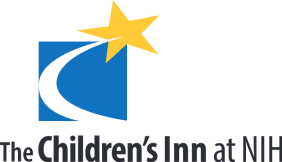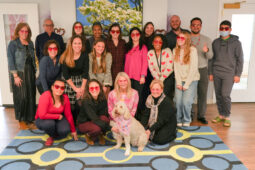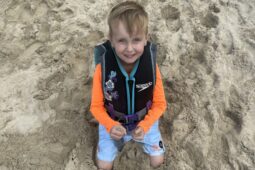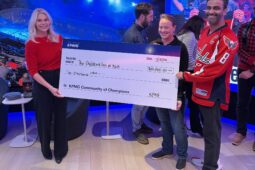Marlon Draws Strength From Family and Groundbreaking Trial
By all appearances, Marlon was a healthy baby. As he grew, however, teachers noticed his speech and behavior were unusual. For years Marlon’s symptoms were interpreted as attention deficit hyperactivity disorder, treated by a therapist.
In his teens, Marlon began slurring words and having trouble keeping his balance. Alarmed, his family took him to a number of doctors near their home in Tula de Allende, north of Mexico City. Blood test results shocked the family. Their handsome, sociable boy who loves playing soccer and is a social media aficionado has a rare genetic condition called Niemann-Pick type C (NP-C).
NP-C prevents cells from processing cholesterol and other fatty molecules. As these accumulate, they progressively impact the brain. Without viable treatment options in Mexico, Marlon’s parents contacted relatives in the United States, who helped Marlon enroll in a research study that brings the family to the NIH every two weeks for treatment.
“The willingness of families to participate in our research is critically important,” says Dr. Forbes Porter, M.D., Ph.D., clinical director at NIH’s Eunice Kennedy Shriver National Institute of Child Health and Human Development (NICHD). “This study will allow us to establish whether this therapy is safe and clinically effective.”
While at the NIH, Marlon, 16, and his mom stay at The Children’s Inn free of charge. Here they can unwind after a day of treatment, enjoy family meals or play air hockey in the game room. His family has made friends with another NP-C patient, the first they have ever met. The Inn’s Spanish-speaking staff and families help them feel at home.
“We thank God for the chance we’ve received,” Marlon’s mom, Esmeralda, says in Spanish. “My friends don’t believe me when I tell them about how wonderful The Inn is. We have never before experienced anything like this.”




